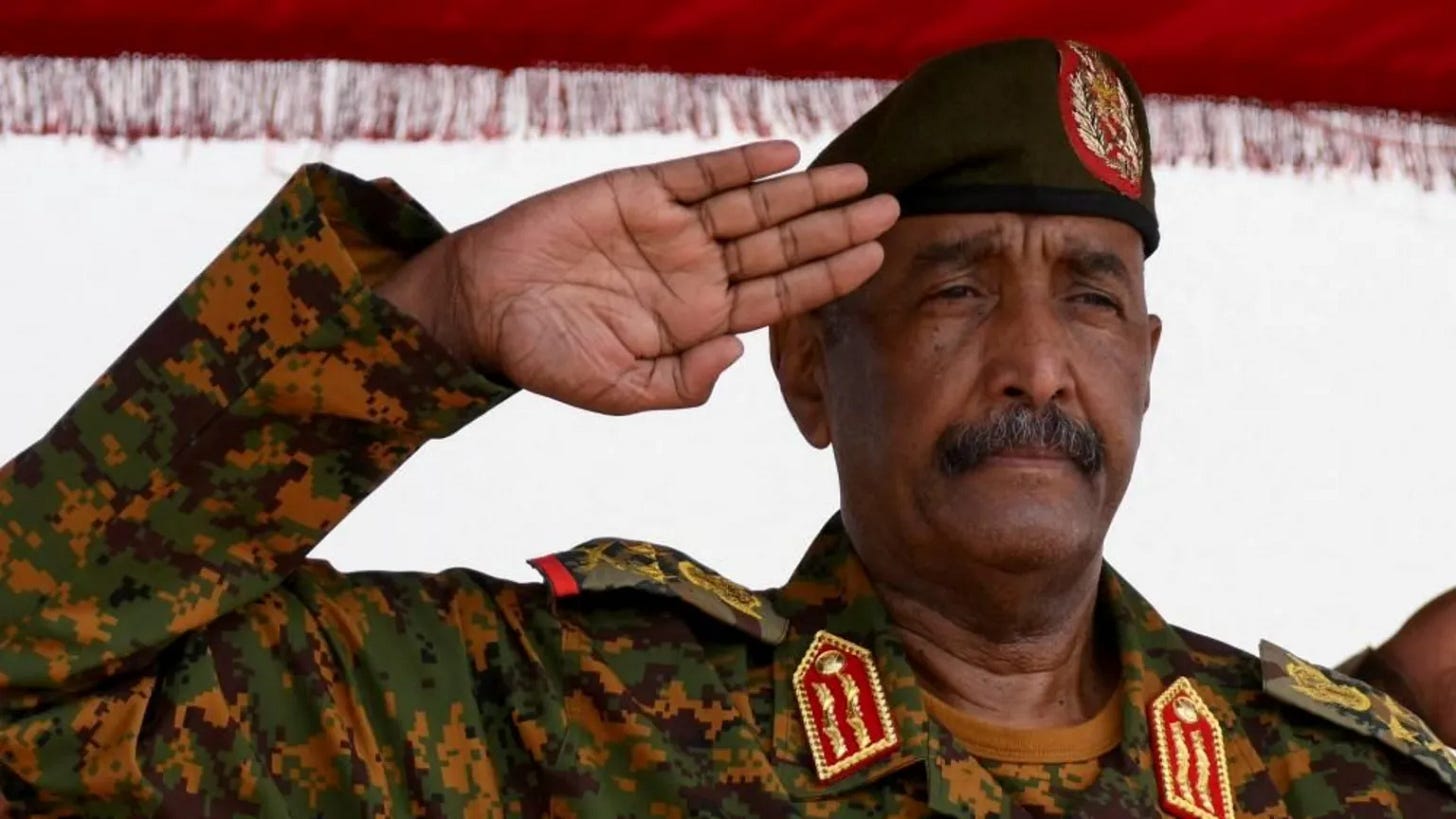Sudan: Can Global Pressure End the Conflict?
Local Resilience (And International Powers) Key to Peace, Justice, and Inclusive Governance
Sudan remains a grim theater of devastation, where the prolonged conflict between the Sudan Armed Forces (SAF) and the Rapid Support Forces (RSF) continues to unravel the fabric of the nation. A recent report by the International Crisis Group (ICG) highlights that the solutions to Sudan’s civil war may rest more in international capitals than within its borders. The ICG urges influential players—Türkiye, Egypt, the United Arab Emirates (UAE), Saudi Arabia, and the United States—to pressure the warring factions into a ceasefire and negotiations.
Gen Abdel Fattah al-Burhan has been leading the army during Sudan's 21-month civil war. Image: Reuters / BBC Africa
The Actors and Allegations
Egypt and the UAE, both significant players, have been accused of exacerbating the conflict by supporting opposing sides. Egypt lends its support to the SAF, which it recognizes as Sudan’s legitimate governing authority. The UAE, while denying accusations of arming the RSF, has faced significant scrutiny over its involvement. Both nations must now decide whether to continue their geopolitical chess game or act as stewards of peace.
Türkiye has offered to mediate, while Saudi Arabia and the United States have made attempts to broker peace—efforts that, thus far, have borne little fruit. Meanwhile, the death toll continues to climb. A recent study by the London School of Hygiene and Tropical Medicine estimates that at least 61,000 people have perished in Khartoum State alone during the first 14 months of fighting.
Atrocities and Deadlock
The SAF, under General Abdel Fattah al-Burhan, has engaged in indiscriminate bombardments and stands accused of deploying chemical weapons against civilians. The RSF, led by General Mohamed Hamdan Dagalo, has been implicated in genocidal campaigns in Darfur. Neither faction has earned the legitimacy needed to govern Sudan, even in the event of a military victory.
The international community remains deeply divided on how to address the crisis. Beyond securing an immediate ceasefire, Sudan requires a comprehensive peace plan that includes civilian representation and a negotiated power-sharing framework between SAF, RSF, and other political stakeholders.
The Human Toll
The humanitarian crisis has reached catastrophic levels. Millions of Sudanese citizens are displaced, with refugee camps in neighboring Chad, South Sudan, and Ethiopia bursting at the seams. Healthcare systems have collapsed, food insecurity is rampant, and basic infrastructure has been decimated.
Yet, within this harrowing landscape, local activists and international humanitarian organizations are stepping in to fill the void. Grassroots movements in Sudan have rallied to provide essential services and push for civilian representation in any future government. Their resilience underscores the potential for a brighter future.
Policy Recommendations for Lasting Peace
Inclusive Governance: International actors must advocate for a power-sharing arrangement that prioritizes civilian leadership and ensures that the voices of women, youth, and marginalized communities are represented in governance structures.
Accountability Mechanisms: Establish an independent tribunal, supported by international legal bodies, to investigate and prosecute war crimes and atrocities committed by all parties.
Tech-Driven Solutions: Leverage digital platforms to document human rights abuses and support humanitarian efforts. Blockchain technology, for example, can enhance transparency in aid distribution.
Regional Diplomacy: Strengthen the African Union’s mediation role and create a unified front among Sudan’s neighbors to curtail arms supplies to the warring factions.
Economic Incentives: International donors should tie reconstruction aid to measurable milestones in peacebuilding and democratic reforms.
Despite the immense challenges, Sudan’s path to peace is not beyond reach. The resilience of its people, combined with a concerted international effort to end external interference, can lay the foundation for a stable, inclusive, and prosperous future. With deliberate action and visionary leadership, Sudan has the potential to emerge as a beacon of hope in the region, proving that even in the darkest times, humanity’s will to rebuild and reconcile endures.
#SudanConflict #PeaceInSudan #InclusiveGovernance #HumanRights #AfricanUnion #GlobalDiplomacy #SudanWar #HumanitarianCrisis #ConflictResolution #ResilientCommunities #PolicyRecommendations





